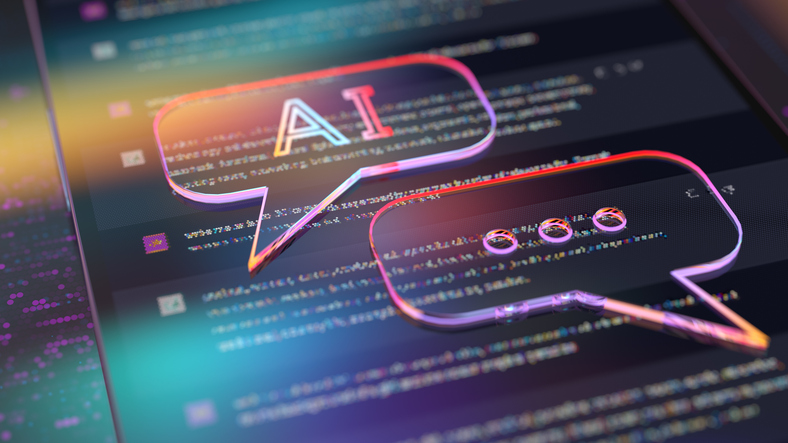Written by Scott Wilson

Folks pulling up for a burger at revered fast-food chain White Castle in some parts of Ohio and Indiana got a bit of an unusual experience in late 2023. Instead of pulling into the drive thru lane and just rattling off their order for a stack of greasy slider goodness, they were first prompted to agree to a set of terms and conditions. Terms and conditions… for a burger?
Tasty as they may be, it turned out the terms weren’t for the burgers. Instead, it was an agreement to have their voices recorded for a new kind of order-taker: artificial intelligence.
The voice recognition system, called Julia, is a sign of things to come in the customer service world. Which is to say, our world. As consumers in a capitalist society, our every interaction with the businesses we shop from, eat at, where we get our health care, buy airline tickets at, and get our coffee from is mediated by customer service.
Before long, most of those contacts won’t happen with people across the counter or on the phone: they will happen with AI on the other side.





An Old Role Updates Regularly With New Technology
 Companies have always looked to technology to help improve the customer experience.
Companies have always looked to technology to help improve the customer experience.
In days of yore, customers and vendors had a more intimate relationship with one another. Most goods and services were produced and sold near where they were used. Sellers and buyers knew one another socially as well as professionally.
The industrial revolution shifted that equation. Mass production and improved shipping took products around the world. They led to larger, less personal stores and catalog orders. But customers still were restricted in contacting businesses to physically showing up at a store or writing a strongly worded letter.
The telephone was the big innovation for customer support that came to the field around 1900. Companies had to install lines and staff up dedicated service teams to handle the calls. It also forced internal process changes, so those service reps could track down orders and address problems.
The introduction of the toll-free telephone number in 1967 allowed companies to create centralized, specialized customer service departments to serve customers from anywhere.
All of that became computerized and automated to some extent by the year 2000. Email and website contact forms came into the mix. But somewhere, somehow, there was always another human being on the other end of the line.
That’s all about to change.
How Artificial Intelligence Will Take on Responsibilities in Customer Service in All Industries
 Artificial intelligence today is dominated by generative pre-trained transformers that excel in the field of natural language processing.
Artificial intelligence today is dominated by generative pre-trained transformers that excel in the field of natural language processing.
This makes them a shoo-in for customer service tasks. The first job in customer service is to be able to hear and understand the customer. NLP systems can use voice and text recognition and tremendous conversational skills to accomplish that whether by phone, email, or chat.
AI are also fast and flexible. A single chatbot system can interact with thousands of simultaneous conversations without getting bogged down or confused.
AI has a significant one-time training cost, but after that, it works for the price of electricity.
Moreover, AI doesn’t quit. The customer service industry sees turnover rates of nearly 45 percent each year. Each of those replacement hires needs to be trained and supervised.
Since every industry comes with customers, every industry has a lot of potential for improvement from AI customer service systems.
Strong Language Skills Make AI a Shoo-in for Front-Line Customer Service Roles
Those strengths make the obvious case for using AI agents as the first line of response in customer service scenarios.
Just as it can respond at drive-thru kiosks, AI can:
- Answer phones
- Reply to emails
- Conduct real-time online chats
With many companies already using basic voice recognition for phone trees, it’s a short step to improving the performance and capabilities of those systems. But AI will quickly reach further toward customer satisfaction with more advanced skills.
Given conversational skills that rival those of many human individuals, AI reps can put customers at ease. They can use vast libraries of training data to understand colloquial language, strange accents, and even automatically translate for customers who speak other languages.
Tied directly to backend order systems, they have the potentially to quickly unravel problems with deliveries or fulfillment. Given enough autonomy, they might create a return ticket and instantly ship out a replacement item.
AI Will Evaluate Customer Service Contacts and Optimize Them
 AI has a role to play in the back office to support better customer service, as well.
AI has a role to play in the back office to support better customer service, as well.
For starters, all interactions it has with customers can be transcribed and analyzed. Other specialized machine learning systems can identify broader issues in the customer service space. An AI tracking calls might notice a very subtle trend in returns or complaints among thousands of interactions, long before humans would pick up on any similarities. That could identify production or fulfillment issues faster and ultimately lead to fewer customer service issues.
Similar analysis might quickly identify better call-handling scripts for human agents to use or allow far greater customization in handling individual customers. For example, an AI plumbed into online tracking and service history data might know all about your preferred colors, price points, and favorite features, and propose solutions aimed exactly at your needs.
Customer Service AI Will Meet Resistance at First
 That wealth of information and instant processing ability has a flip-side that is a big concern with AI everywhere today: privacy and security.
That wealth of information and instant processing ability has a flip-side that is a big concern with AI everywhere today: privacy and security.
Any intelligent agent with so much information that is so easy to access gives many consumers pause. And the history of safeguarding customer data isn’t good when it comes to big corporations. Hacks resulting in the loss of customer data happen constantly, and in large numbers.
AI isn’t exactly perfect yet when it comes to logic and reasoning through conversational intent. Julia, for instance, has a lot of trouble understanding slang in orders that humans have no problem with. She’s also been panned for pushing up-sells a little too aggressively. AI can conduct sentiment analysis on language and tone, but AI engineers are having trouble giving agents the ability to easily read the room in a way that human agents do naturally.
This is a big problem because on-the-job tuning is tough for AI in customer service. While machine learning systems improve with experience, even one bad experience in customer service interactions will send 80 percent of customers to a competitor. Companies can’t afford many mistakes in this area.
Human and Machine Agents Together May Offer The Best Service
This points toward a more likely kind of AI customer service roll out that combines the best of both worlds. That means the use of AI as a way to augment human customer service professionals.
Customer service could also be one of the areas where we see the first effective combination of human and AI agents.
Although the media attention is all focused on direct interactions between AI and customers, most AI implementations in customer service departments will first come on the back end. You may say chatbots offering real-time feedback and suggestions to customer service agents as they listen in on calls. They will probably be used to draft replies and suggest actions from online contacts… but a person will review and approve those suggestions.
This cuts down on the workload and makes customer service faster and more efficient without risking AI going rogue and recommending competing products or offering to sell a $56,000 SUV to a customer for only a dollar. And it allows human customer service agents to focus on the human side of the business: expressing empathy and understanding. Robots are a long way from being able to feel for customers who have had a bad experience.
What Sort of Degree Offers the Best Training for AI in Customer Service Development?
 As one of the areas that nearly every business will adopt AI to handle, and soon, there is almost certainly going to be a short-term crunch in demand for AI experts who can put together customer service systems.
As one of the areas that nearly every business will adopt AI to handle, and soon, there is almost certainly going to be a short-term crunch in demand for AI experts who can put together customer service systems.
It’s as much a business problem as a technical challenge, though. That puts these roles firmly in the realm best served by picking AI degrees aimed at solving practical challenges in business and government.
These kinds of programs combine advanced knowledge of statistics, programming, and deep learning processes with practical engineering and business skills.
Since most implementations of AI in customer service will happen using chatbot backends and models that have already been developed, many jobs in the field will require only undergraduate study. A degree like a Bachelor of Science in Artificial Intelligence can easily get the ball rolling along this career path.
With classes in business management, AI ethics, and overarching software development systems, they position graduates for leadership roles in new customer service AI deployment projects.
Of course, more advanced programs, like a Master of Science in Applied Artificial Intelligence, offers more options and more senior jobs in customer service AI development. With the most cutting-edge, research-focused curricula available today, these are where the breakthroughs are happening in the industry.
Certificates and Certifications Polish up Skills and Credentials for AI Customer Service
 There are plenty of people who already work in both business and programming who may not want or need to go back to school for a full degree just to build up their AI chops. For people with a strong STEM background, a program like a Certificate in Artificial Intelligence and Machine Learning, or a Graduate Certificate in Ethical Artificial Intelligence, offer another path in.
There are plenty of people who already work in both business and programming who may not want or need to go back to school for a full degree just to build up their AI chops. For people with a strong STEM background, a program like a Certificate in Artificial Intelligence and Machine Learning, or a Graduate Certificate in Ethical Artificial Intelligence, offer another path in.
While educational certificates will help you develop the right background skills for customer service AI development and implementation, there’s another kind of certificate that may be key to actually landing jobs in the field.
In a world where the personal touch is going to be more and more important, combining AI capabilities and business comprehension is really the ultimate qualification.
These are AI professional certifications. They are offered by industry groups and software vendors. The focus is less on training people for those systems or tools and more on validating abilities to use them successfully. They are a quick way for potential employers to verify that individuals have the skills they claim on their resumes.
There aren’t any certifications that are particularly aimed at customer service applications of AI today. But it’s pretty reasonable to guess that a lot of the breakthroughs in this and other new uses of artificial intelligence will come from the kind of people who have the skill and drive to earn such certifications.
For AI in customer service systems to reach the next level, it’s going to take people at the top of their game in both business and artificial intelligence.






